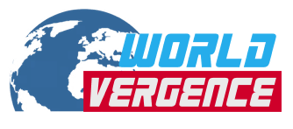The Freedom of speech and expression lies at the heart of a thriving democracy, protecting the rights of citizens to voice their opinions, engage in public discourse, and hold those in power accountable. To preserve these fundamental liberties, the Constitution of the United States was crafted to keep the government from directly censoring the people. However, as technology and the digital landscape evolved, a concerning trend has emerged: governments are increasingly using private companies as proxies to control the narrative and censor individuals’ speech.
The First Amendment of the U.S. Constitution explicitly prohibits the government from infringing upon the freedom of speech, press, assembly, and petition. This crucial safeguard ensures that citizens have the right to voice their beliefs, challenge authority, and participate in the democratic process without fear of retaliation. Nevertheless, certain governments have sought alternative means to stifle dissent and control information flow, through the collaboration with private companies like Meta, Twitter, TIKTOK. Google etc.
The rise of social media and tech giants has given these companies unprecedented control over the digital public square, where ideas are exchanged, opinions are formed, and debates take place. Governments have realized the power of these platforms and have, in some cases, exploited their influence to promote their own agendas or suppress dissenting voices
One of the most concerning aspects of this phenomenon is government pressure or collaboration with tech companies to remove content or silence individuals deemed undesirable or critical of the ruling regime. By leveraging the terms of service, content policies, and community guidelines of these companies, governments can indirectly censor and control information dissemination.
Moreover, governments might impose strict regulations on tech companies, threatening fines or restrictions unless they comply with certain content removal demands. In some cases, governments even grant sweeping surveillance powers to these companies, compromising user privacy in exchange for controlling the narrative.
The ramifications of such actions are far-reaching. Citizens are left with a limited and curated version of reality, which hinders the development of a well-informed society. Diverse viewpoints and alternative perspectives are stifled, leading to echo chambers and polarization within society. The erosion of free speech also undermines public trust in both the government and the private sector, ultimately weakening democratic institutions.
As this troubling trend persists, it is essential to consider potential solutions to safeguard freedom of expression while respecting legitimate concerns about misinformation, hate speech, and other harmful content. Striking a delicate balance between maintaining an open digital space and mitigating the spread of harmful information is critical to preserve democracy in the digital age.
Firstly, governments must respect the principles of free speech and avoid pressuring or coercing private companies into censorship. They should work collaboratively with these companies to develop transparent content moderation policies that reflect democratic values while addressing genuine concerns about harmful content.
Secondly, tech companies should be more transparent about their content moderation practices. Users deserve to know how decisions about content removal are made and what criteria are used. Additionally, these platforms should be open to external audits to ensure fairness and impartiality in their content moderation processes.
Lastly, individuals must exercise critical thinking and media literacy. By diversifying their sources of information and fact-checking content, users can resist the influence of manipulated narratives and better discern between credible information and disinformation.
In conclusion, the Constitution acts as a firewall, protecting citizens from direct government censorship. However, the evolving landscape of digital communication has opened the door for governments to exploit private companies as instruments of control and censorship. To preserve freedom of expression in the digital age, a collective effort is required from governments, tech companies, and individuals to be governed by the constitution to protect the vitality of democratic discourse in the modern world.

